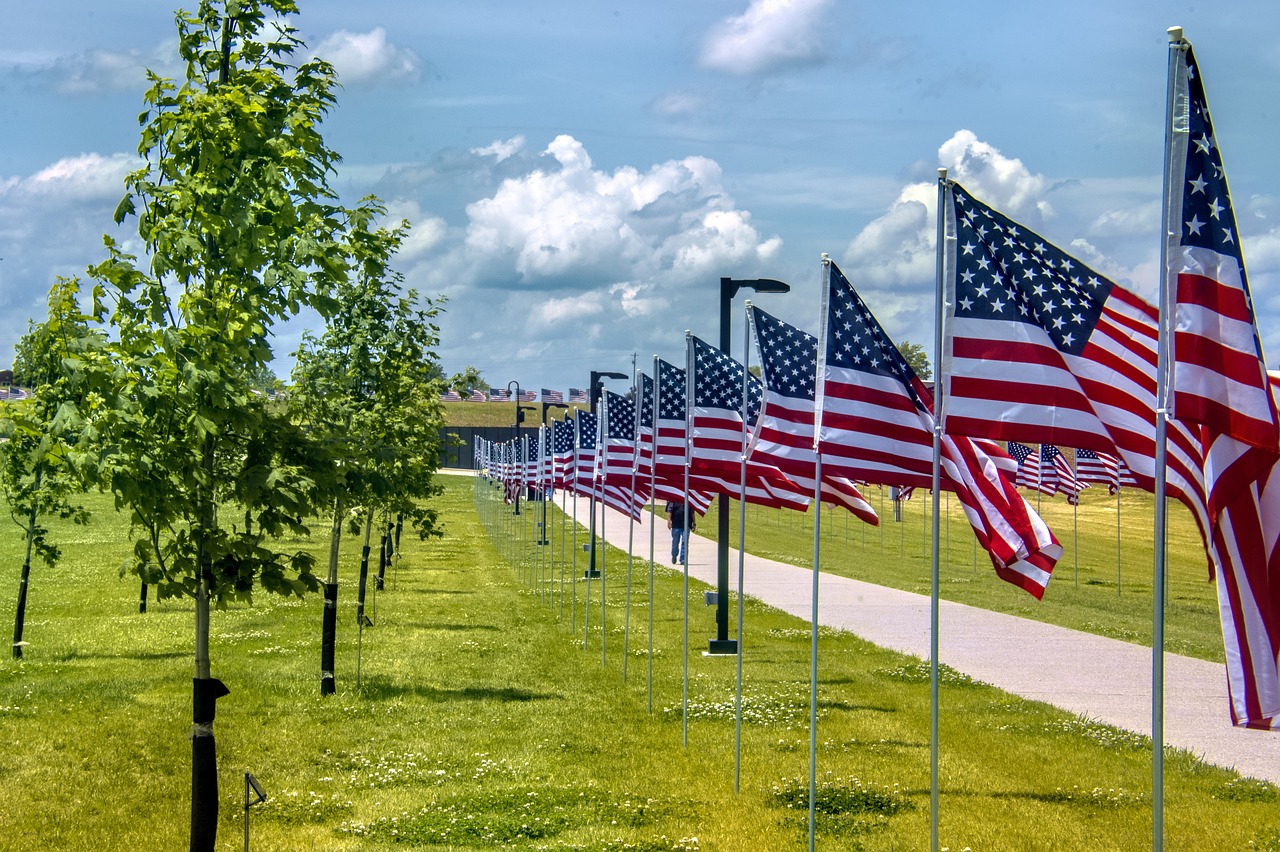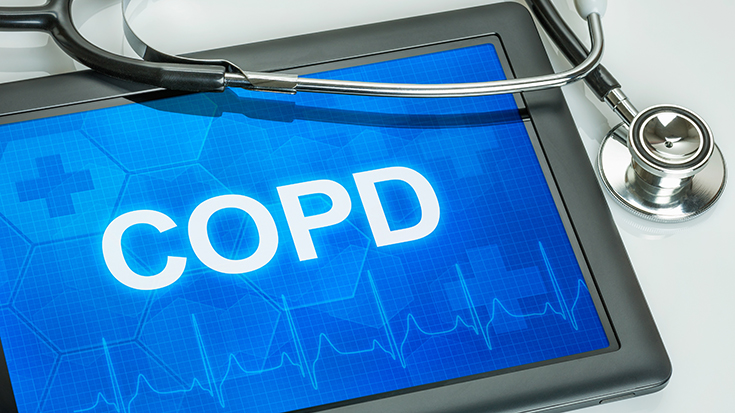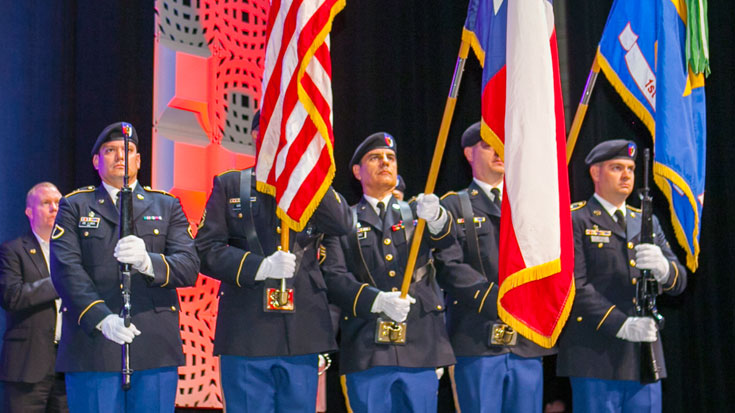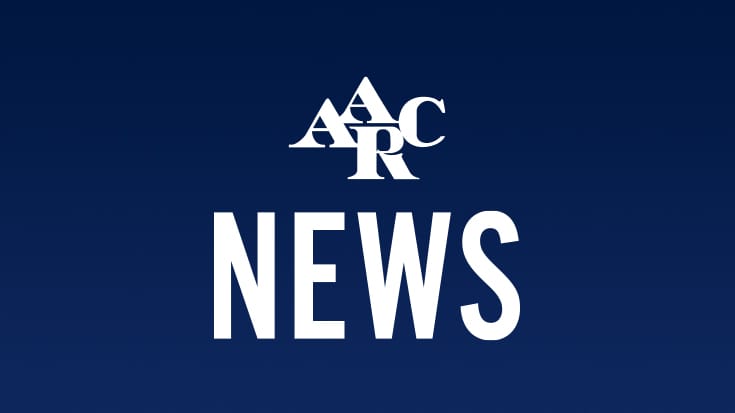Enable cookies to see embeded content.
Veterans Day is Saturday, Nov. 11, and is a time set aside to give a special ‘thank you’ to all our U.S. Veterans, for the service and dedication they give to our country. The AARC is honored to have AARC members who are also veterans. We are continually grateful, each day, for all you do. We asked a few of our military members to share their experiences as an RT and veteran.
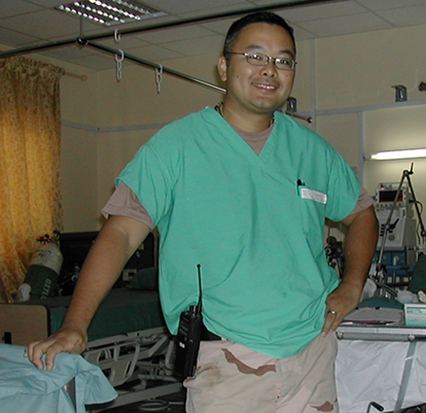
Joseph Buhain, EdD, MBA, RRT, FAARC, EMT
Current Rank: Lieutenant, USNR
Prior Rank: Sergeant First Class, U.S. Army
As a member of the U.S. Army Reserve, Buhain received the Bronze Star for the service he gave during a year-and-a-half tour of duty in Afghanistan. While serving as an instructor and mentor at the Mier Weis Hospital in Kandahar City, Afghanistan, Buhain trained more than 350 medical students in CPR. He also helped secure more than $100,000 of free medical equipment for the hospital from the Mayo Clinic’s Respiratory Therapy unit, coordinated donations of needed medical books, and helped rebuild the hospital’s infrastructure.
“I learned techniques such as mass trauma triage,” Buhain said, reflecting on his time working in a mobile army surgical hospital. “That has enhanced my ability to teach students at the College the fundamentals of CPR, who to treat, and airway assessment. CPR was a skill I had learned early on and had done it previously in civilian hospitals. But when there are 20 people who require it simultaneously, well, you have to learn to contend with that. You learn to prioritize.”
Buhain is current a member of the United States Navy Reserve, as well as director of respiratory therapy and associate professor of simulation studies at St. Paul College in Minnesota. He credits his experiences in Afghanistan and Iraq with giving him an uncommon perspective and richness to add to his teaching.
“I want my students to learn not only from textbooks, but from the world,” Buhain said. “The world around us teaches more than any text can.”
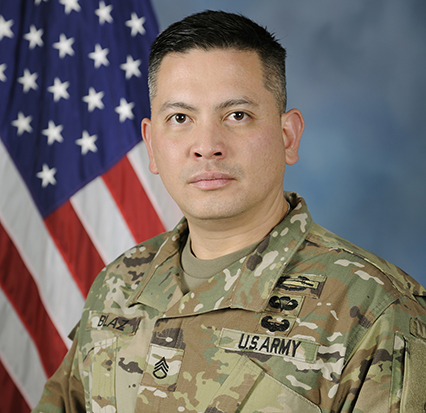
John T. Blaz, CRT
Staff Sergeant, U.S. Army
Blaz is a U.S. Army Staff Sergeant with 17 years of service, and his Military Occupational Specialty (MOS) is a 68V Respiratory Specialist. During his service, Blaz has been deployed numerous times to Afghanistan, Africa, Iraq and Kuwait.
As a deployed respiratory therapist, Blaz had the chance to work alongside many U.S. Air Force and U.S. Navy respiratory therapists. Together, they stabilized critically injured service members, secured their airways, and managed their mechanical ventilator settings, which prepared them for air transport back to the continental U.S.
“Being a Respiratory Therapist in the U.S. Army is a very challenging and demanding job which never ends,” Blaz said. “I am proud to be a part of team of Medical Professionals that always put the needs of their patients before their own. It is an absolute honor to serve our great country.”
Blaz is currently assigned to the Interservice Respiratory Therapy Program at JBSA Fort Sam Houston, San Antonio, TX as a Phase I, Respiratory Therapy Instructor. He teaches both U.S. Army and U.S. Navy respiratory therapy students before they go on to their Phase II training.
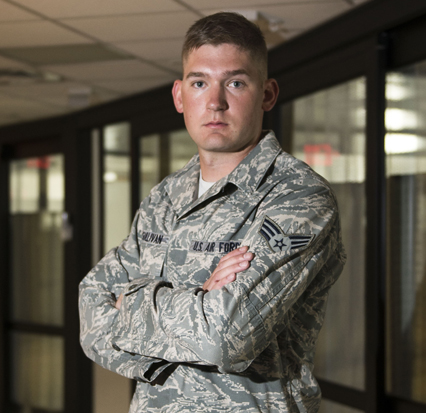
Joshua O’Sullivan, RRT
Senior Airman, U.S. Air Force
Senior Airman Joshua O’Sullivan is a respiratory therapist from the 88th Medical Group, Wright-Patterson Air Force. On Nov. 12, 2016, O’Sullivan was part of the Critical Care Air Transportation Team deployed to Bagram Airfield, Afghanistan, when he heard a large explosion near his quarters.
O’Sullivan ran toward the scene and began providing medical aid. It was during this time that he determined that immediate surgical needs were required for the wounded patients. He directed available personnel to load and evacuate the injured individuals from the site to the hospital, using nearby military police vehicles.
Within minutes, the site of the attack was clear of casualties and O’Sullivan rode with the last victim in the back of a pickup truck, continuing to control the bleeding while stabilizing the patient’s condition. He continued to work with the critically injured patients at the hospital.
O’Sullivan was awarded the Air Force Commendation Medal for his decisive actions that helped save the lives of 12 U.S. military members and one coalition military member.

James P. Keith, RRT, RRT-NPS
PFC, Delaware Army National Guard
Keith was first exposed to the medical field in 2011 while serving in Afghanistan as a MEDEVAC crew chief in the Army.
“I was intrigued by the medics and what they knew about the physiology and anatomy of the human body,” Keith said. “I decided to start respiratory school shortly after I came home.”
Keith is currently working at the Nemours Alfred I. duPont Hospital for Children.
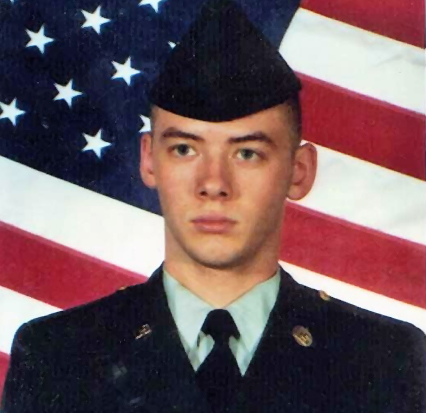
Nicholas McCord, BSRT, RRT
Specialist / E-4, U.S. Army National Guard
McCord served for six years in the U.S. Army National Guard, which included a tour in Iraq from February 2003 – June 2004. He was a Military Police Officer in the U.S. Army National Guard 933rd MP Co. Currently McCord is the Senior Respiratory Therapist at the UW Health at The American Center in Madison, WI.
While his military job and deployment in Iraq did not relate to respiratory care, McCord was awarded the Army Commendation for medical response actions during a vehicle accident on a main supply route northwest of Nasiriyah, Iraq.
“My teams were providing route security,” McCord said. He explained that the crash occurred between a military HET vehicle and an American contractor SUV.
“Military members were unharmed due to the size of the vehicle,” McCord said. “Unfortunately, the civilian contractors were both seriously injured.”
The driver of the SUV had a severe head injury with a laceration to the superficial temporal artery and the passenger had a section of the dash board stuck into the major portion of his leg.
“While my team provided cover and called in a med-evac, I worked to treat the head laceration with a pressure bandage in order to stem the bleeding,” McCord said. “I extricated the driver of the vehicle and a squad mate treated him for shock. While he was being treated, I cut the dash away from the vehicle and wrapped the foreign object in place on the victim’s leg. Both victims were transported out of area and were successfully treated.”
For McCord, this experience set a new course for his life.
“This moment in my deployment changed my path indefinitely,” McCord said. “I decided to move away from being a police officer and move toward a healthcare career.”
McCord started with EMS and found RT during his clinicals. He completed his bachelor’s from the University of Missouri in 2014.
“I have been working in Respiratory Care for 10 years and enjoy every minute of it,” McCord said.
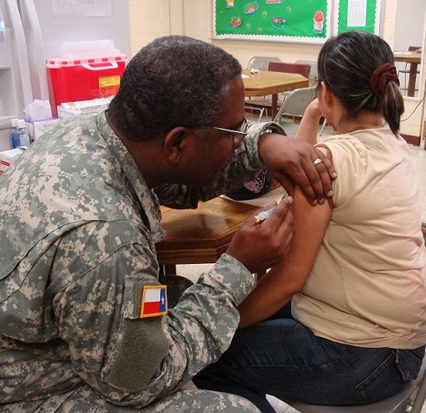
Wadie Williams, Jr., MS, RRT, RCP, CerAT, MEMS(S)
Lieutenant Colonel (LTC), Texas Military Forces, Texas State Guard, Medical Brigade
Williams is the respiratory care department and dermatology therapeutics manager at the Houston Methodist Hospital in the Texas Medical Center. He has served in the military for 13 years, and is still active.
“Probably one of the more memorable moments for me was during the early part of my service in the Texas State Guard,” Williams said.
Williams was deployed on a humanitarian medical mission in South Texas for two weeks, providing medical services to those in need as a part of their annual Joint Training Exercise with the Texas Department of Health and Human Services. It was during a roving medic assignment that Williams was requested to assist someone in the Tactical Operations Center (TOC) who was having breathing problems.
“I hustled across the field to the TOC and was met by another soldier who was giving me an update while I made my way inside,” Williams said. “When I arrived, I asked ‘who was the patient.’ To my surprise, it was a general! I snapped a quick salute and asked his permission to check him out, to which he nodded yes.”
Williams could hear that the general’s breathing was labored with some audible wheezing, but he did not observe any other concerning symptoms at that time.
“I asked him to nod yes or no to my questions to help him not stress his breathing by talking,” Williams said. “I asked if he had this happen before and he indicated he had asthma and took inhaler medication.”
Williams pressed his stethoscope against the general’s uniform and could hear wheezing in both upper and middle lobes. He then asked him about what bronchodilator meds he took. Williams happened to have a spare inhaler on him and proceeded to administer it, coaching the general on taking in medicated puffs.
“After a few minutes we repeated the procedure and his breathing eased considerably,” Williams said. “After several more minutes, he was breathing comfortably, and his breath sounds had improved.”
The following day, while Williams was making his roving medic rounds, he was again met by the same general.
“He bellowed out my name, which somewhat startled me, and I stopped dead in my tracks,” Williams said. “He held out his hand as if he wanted to shake mine, so I extended mine and took his. Upon doing so, I felt an object pressed against my palm. When we released our shake, I looked at the ribbon he had ‘palmed’ me with. It was a Commanding General’s Individual Award ribbon. He thanked me again for treating him the day before and continued on his way.”
Email newsroom@aarc.org with questions or comments, we’d love to hear from you.







